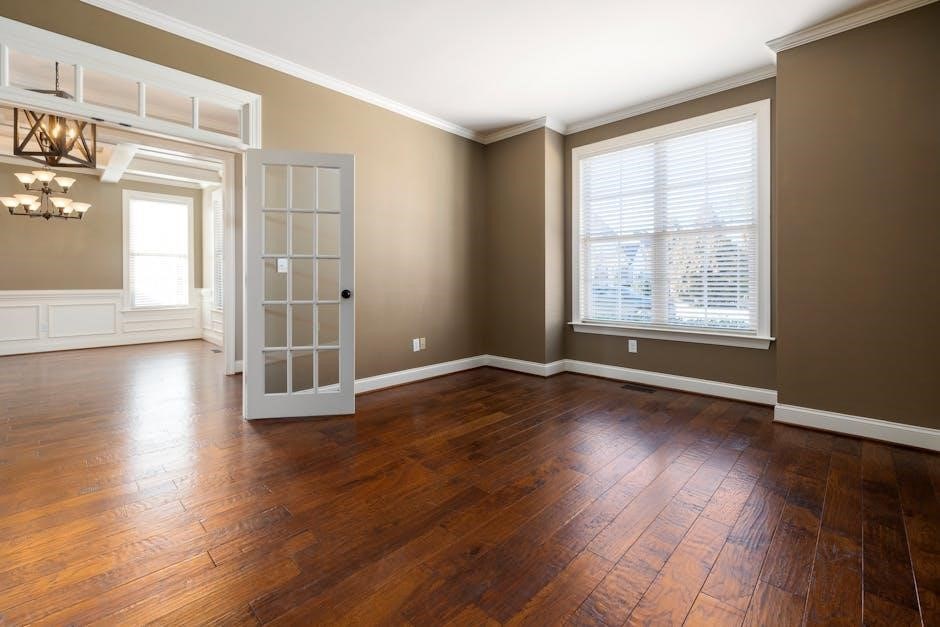An Idaho Room Rental Agreement is a legal contract outlining the rights and responsibilities of tenants and landlords in shared living arrangements. It ensures clarity on rent, utilities, and house rules, providing a framework for resolving disputes and maintaining harmonious cohabitation. This agreement is essential for both parties to establish clear expectations and protections under Idaho law.
1.1 Importance of a Written Room Rental Agreement
A written room rental agreement is essential for establishing clear expectations and protecting both tenants and landlords. It outlines rent, utilities, and responsibilities, preventing misunderstandings. The agreement also provides legal protection by documenting the terms of the tenancy. Having a written contract ensures that all parties understand their obligations, making it easier to resolve disputes. In Idaho, a written agreement is crucial for complying with state laws and maintaining a harmonious living environment. It serves as a legally binding document that safeguards everyone involved.
1.2 Brief Overview of Idaho Rental Laws
Idaho rental laws govern the relationship between landlords and tenants, ensuring fair practices. Rent can be set freely, and agreements can be oral or written. Landlords must provide a habitable living space and maintain essential services. Tenants are responsible for adhering to lease terms and paying rent timely. Idaho law allows landlords to enter the property with reasonable notice, typically 24 hours. Evictions require legal processes, and tenants have rights to dispute unfair practices. Understanding these laws is crucial for both parties to navigate rental agreements effectively and avoid legal disputes.

Key Components of an Idaho Room Rental Agreement
An Idaho room rental agreement must include tenant and landlord details, property description, rent terms, payment methods, security deposits, and termination clauses to ensure legal compliance.
2.1 Tenant and Landlord Information
The agreement must include the full names, addresses, and contact details of both the tenant and landlord. This section ensures accountability and clarity in communication. It also outlines the roles and responsibilities of each party, providing a clear record of who is involved in the rental arrangement. Accurate tenant and landlord information is essential for legal purposes and helps prevent disputes. Signatures from both parties are required to validate the agreement, ensuring mutual understanding and compliance with Idaho rental laws.
2.2 Description of the Rental Property
The rental property section details the address, specific room rented, and shared spaces like the kitchen or living area. It clarifies boundaries and amenities, ensuring both parties understand the arrangement. This description prevents disputes by outlining the property’s condition, included furniture, and any restrictions. Clear details about the rental space help establish mutual expectations and responsibilities, providing a transparent foundation for the tenancy under Idaho rental agreements.
2.3 Rent and Payment Terms
The rent and payment terms section outlines the monthly rent amount, due date, and accepted payment methods. It specifies if utilities are included or shared, and details any security deposit requirements. Late payment fees and penalties are also defined. This section ensures clarity on financial obligations, preventing misunderstandings. Both parties agree to the terms, establishing a clear payment schedule and expectations for maintaining timely payments throughout the rental period under Idaho rental agreements.
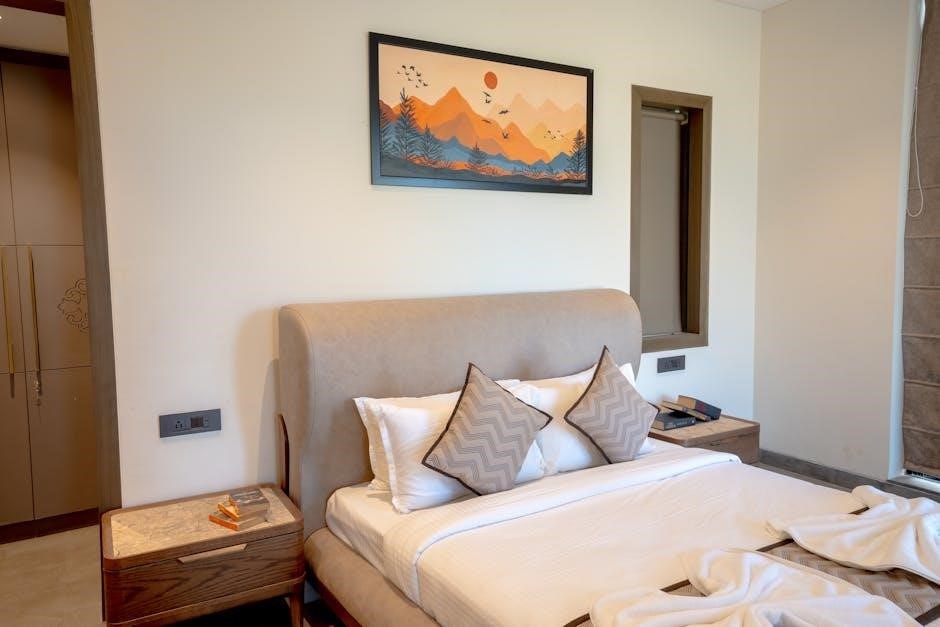
Legal Requirements for Room Rentals in Idaho
Idaho room rentals must comply with state laws governing security deposits, landlord entry rights, and termination procedures. These regulations ensure a balanced and fair rental relationship for all parties.
3.1 Security Deposit Laws
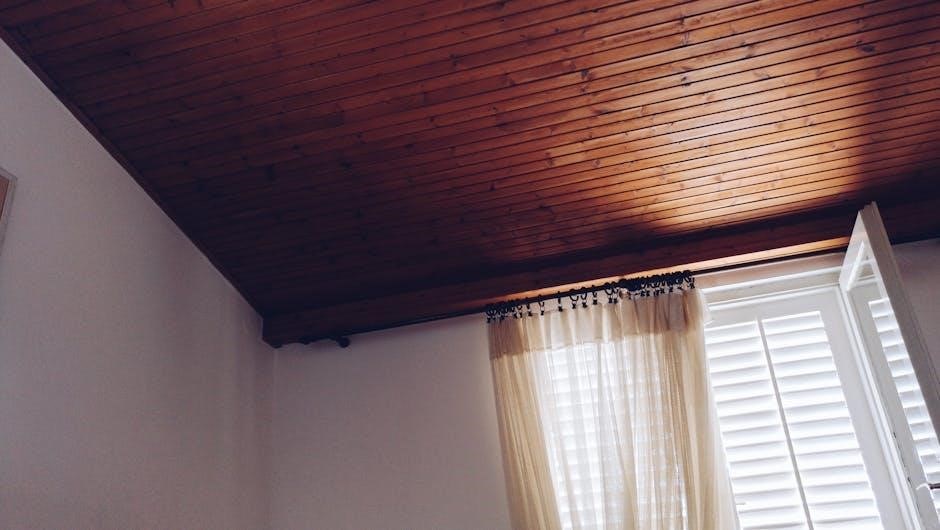
In Idaho, there is no state-specific limit on the amount a landlord can charge for a security deposit. Landlords are required to provide tenants with a written receipt for the deposit upon request. The deposit must be returned within 30 days after the tenant vacates the property, minus any deductions for damages or unpaid rent. Idaho law does not require landlords to pay interest on security deposits. Tenants should document the property’s condition before moving in to avoid disputes over deposit deductions.
3.2 Landlord’s Right to Entry
In Idaho, landlords have the legal right to enter a rental property, but they must provide tenants with at least 24 hours’ written notice, except in emergencies. The purpose of entry must be valid, such as for repairs, inspections, or showing the property to potential buyers or renters. Tenants’ privacy rights are protected under Idaho law, and landlords cannot enter without proper notice or consent. Failure to comply with these requirements may result in legal consequences for the landlord. Clear communication and mutual respect are essential to maintaining a positive landlord-tenant relationship.
3.4 Termination of Tenancy
In Idaho, the termination of a room rental tenancy must adhere to legal standards. Either party can terminate the agreement with a minimum of 30 days’ written notice, though this period may be adjusted by mutual written consent. For month-to-month agreements, termination requires the same notice. Landlords must have valid cause to terminate a fixed-term lease, while tenants are generally free to leave after providing proper notice. The agreement should outline specific termination terms to avoid disputes and ensure compliance with Idaho rental laws. Clear communication is essential during this process.

Creating an Idaho Room Rental Agreement
Creating an Idaho Room Rental Agreement involves using a PDF template, customizing terms, and ensuring both parties sign and date the document for legal validity and clarity.
4.1 Using a PDF Template
Using a PDF template for an Idaho Room Rental Agreement streamlines the process, ensuring professional formatting and compliance with state laws. Templates typically include fillable fields for tenant and landlord details, rent terms, and house rules. They often cover essential clauses such as payment terms, security deposits, and termination protocols. PDF templates are easily customizable, allowing users to adapt the agreement to their specific needs. Many websites offer free, downloadable Idaho-specific templates that are legally compliant and designed to protect both parties’ interests. This method reduces errors and saves time compared to drafting an agreement from scratch.
4.2 Customizing the Agreement
Customizing an Idaho Room Rental Agreement allows parties to tailor the contract to their specific needs. Users can modify clauses related to rent, utilities, house rules, and property maintenance. The agreement can be adjusted to reflect the unique terms of the rental arrangement, ensuring it aligns with Idaho state laws. Fillable PDF templates provide flexibility, enabling easy edits to sections like payment terms, security deposits, and termination protocols. This customization ensures the agreement accurately represents the agreed-upon terms and protects both tenants and landlords effectively.
4.3 Signing and Dating the Document
Once the Idaho Room Rental Agreement is customized, both the landlord and tenant must sign and date the document. This step ensures the agreement is legally binding and acknowledges mutual understanding of the terms. Witnesses, though optional, can add an extra layer of security. The date confirms when the agreement takes effect, and all parties should receive a copy for their records. This formal process validates the contract, providing a clear record of the agreed-upon terms and protecting both parties’ interests under Idaho law.
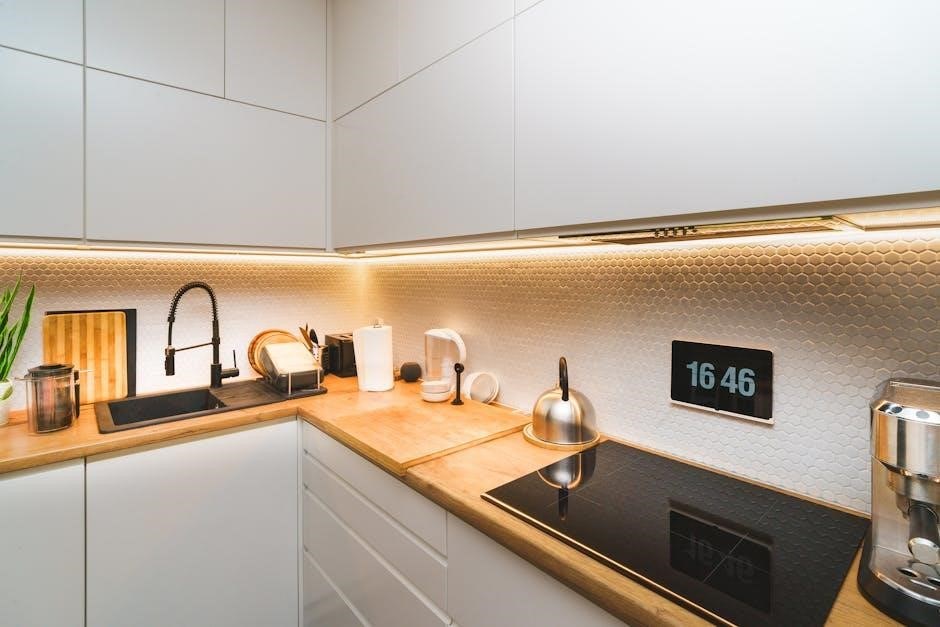
Tenant Responsibilities and Rights
Tenants in Idaho are responsible for paying rent on time, maintaining the property, and adhering to house rules. They have the right to a habitable living space and privacy, ensuring a fair and respectful living arrangement under the agreed terms.
5.1 Maintaining the Rental Property
Tenants are responsible for maintaining the rental property by keeping it clean, reporting damages, and addressing minor repairs promptly. They must adhere to agreed-upon house rules and properly dispose of trash; Common areas, such as kitchens and bathrooms, should be shared responsibly to ensure a pleasant living environment. Tenants must also avoid causing intentional damage or neglect that could harm the property. Regular maintenance helps preserve the property’s condition and ensures a harmonious living arrangement for all occupants under the Idaho room rental agreement terms.
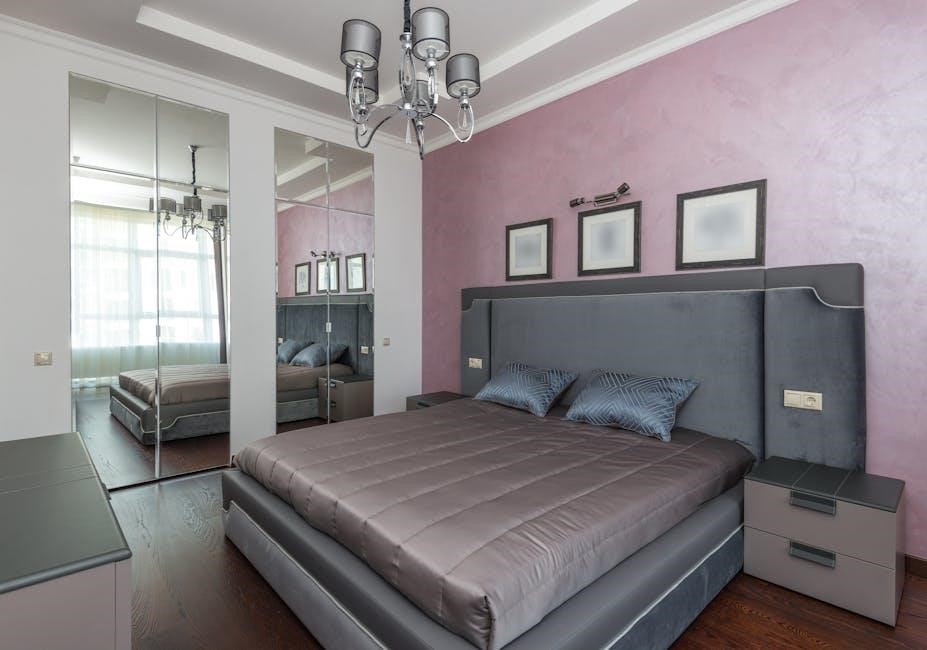
5.2 Adhering to House Rules
Tenants must adhere to the established house rules outlined in the Idaho room rental agreement. These rules often include quiet hours, guest policies, and shared space maintenance. Tenants are expected to respect these guidelines to ensure a harmonious living environment. Failure to comply may lead to conflicts or termination of the agreement. House rules are mutually agreed upon and apply to all tenants equally, fostering responsibility and cooperation among roommates. They help maintain order and protect the interests of all parties involved in the rental arrangement.
5.3 Paying Rent on Time
Paying rent on time is a fundamental responsibility of tenants in Idaho room rental agreements. The agreement specifies the due date, acceptable payment methods, and late fees. Tenants must prioritize timely payments to avoid penalties or potential eviction. Late payments can strain landlord-tenant relationships and may lead to legal consequences. Ensuring rent is paid on schedule demonstrates accountability and helps maintain a positive rental experience for all parties involved. It is essential for tenants to review and adhere to the payment terms outlined in the agreement to avoid disputes.
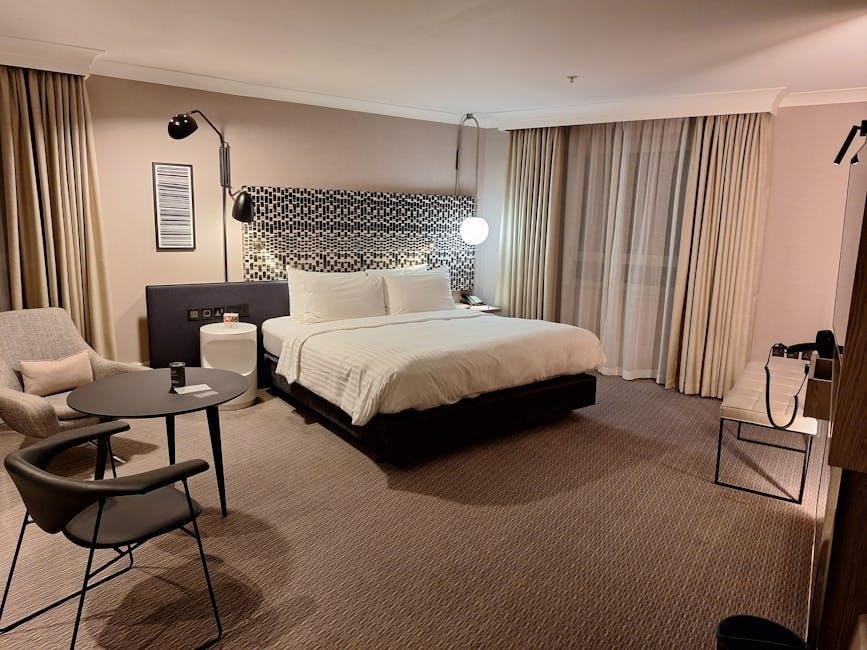
Landlord Responsibilities and Obligations
Landlords in Idaho must provide a habitable living space, manage security deposits per state laws, and respect tenant privacy. They are required to maintain the property, address repairs, and ensure compliance with all legal standards, fostering a safe and fair rental environment for tenants.
6.1 Providing a Habitable Living Space
Idaho landlords must ensure the rental property is safe, habitable, and free from hazards. This includes maintaining structural integrity, ensuring proper ventilation, and providing essential utilities like water, heat, and electricity. Landlords are also responsible for addressing repairs and maintaining common areas to prevent unsafe conditions. Failure to meet these obligations can result in legal action, emphasizing the importance of compliance with Idaho’s habitability standards to protect both tenants and property owners.

6.2 Managing Security Deposits
Landlords in Idaho must manage security deposits responsibly. Idaho law requires landlords to provide tenants with a written receipt for security deposits. Landlords are also mandated to pay annual interest on security deposits if the deposit exceeds one month’s rent. Upon termination of the tenancy, landlords must return the security deposit within 30 days of the tenant moving out. If deductions are made for repairs or cleaning, landlords must provide an itemized list of charges. Proper management of security deposits ensures compliance with Idaho rental laws and protects both landlords and tenants from potential disputes.
6.3 Respecting Tenant Privacy
Idaho landlords must respect tenants’ privacy rights under state law. Landlords are required to provide at least 24 hours’ notice before entering a rental property, except in emergencies. Tenants have a reasonable expectation of privacy, and landlords cannot enter the property without valid reason or proper notice. This ensures tenants’ personal space and belongings are protected. The lease should outline specific terms regarding entry to maintain mutual understanding and respect for privacy. Landlords who violate these rules may face legal consequences, emphasizing the importance of adhering to Idaho’s privacy protections for tenants.
Common Disputes in Room Rentals
Common disputes in Idaho room rentals often involve rent payments, property damage, and conflicts between roommates. Clear agreements and open communication can help mitigate these issues.
7.1 Disputes Over Rent
Disputes over rent in Idaho room rentals often arise from late payments, unpaid utilities, or disagreements over rent allocation. A clear agreement outlining payment terms, due dates, and utility responsibilities can prevent such conflicts. Tenants should ensure rent is paid on time, while landlords must provide receipts and manage deposits according to Idaho laws. Open communication and a well-drafted agreement are key to resolving rent-related issues amicably and maintaining a positive landlord-tenant relationship.
7.2 Conflicts Between Roommates
Conflicts between roommates often stem from differences in lifestyle, cleanliness, or financial responsibilities. Establishing clear house rules and expectations in the rental agreement can minimize disputes. Open communication is crucial to resolving issues like noise levels, shared spaces, or utility payments. Mediation may be necessary if disagreements persist. A well-drafted roommate agreement ensures each party’s responsibilities are defined, helping to maintain harmony and avoid legal complications. Regular discussions can address concerns before they escalate into larger conflicts.
7.3 Property Damage Disputes
Property damage disputes often arise when roommates or tenants disagree over responsibility for damages. These disputes can involve accidental damage, negligence, or intentional harm to the rental property. A well-drafted Idaho room rental agreement can help prevent such conflicts by outlining each tenant’s responsibilities. Security deposits are often at the center of these disputes, as landlords may withhold funds for repairs. Documenting the property’s condition before occupancy and having a clear agreement can reduce misunderstandings. Mediation or legal action may be necessary if parties cannot resolve the issue amicably;
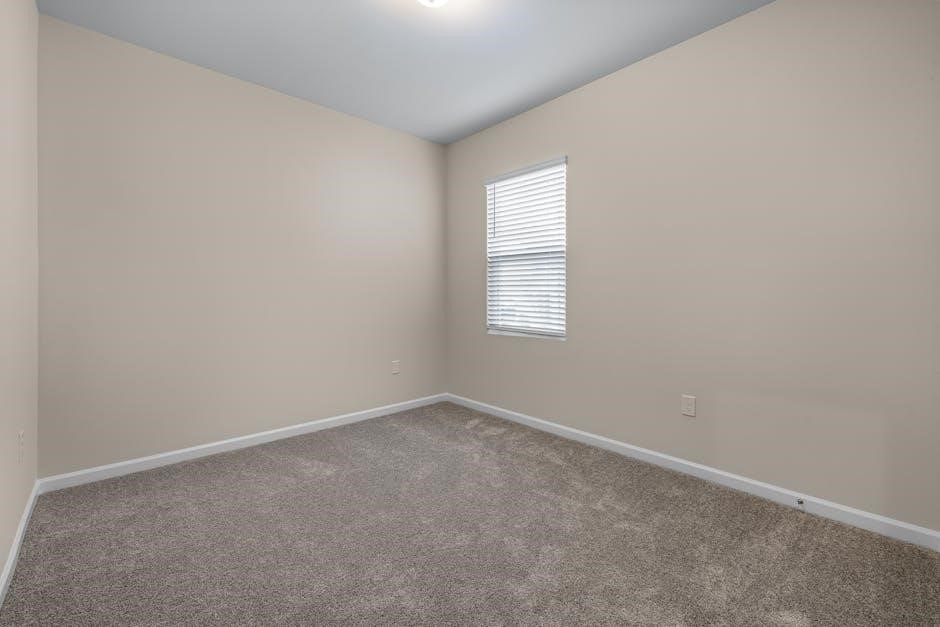
Best Practices for Room Rentals in Idaho
Using official Idaho room rental templates ensures compliance with state laws. Screen tenants thoroughly and maintain open communication to avoid conflicts. Regular property inspections are recommended.
8.1 Screening Potential Tenants
Screening potential tenants is a crucial step in ensuring a harmonious and profitable room rental experience in Idaho. Start by requesting a detailed rental application form, which should include employment verification, rental history, and personal references. Conduct thorough background checks to evaluate applicants’ reliability and trustworthiness. Clearly communicate your expectations and house rules during the screening process to avoid future misunderstandings. Additionally, ensure compliance with Idaho housing laws to prevent discrimination issues. This step helps build a positive landlord-tenant relationship and minimizes potential conflicts down the line.
8.2 Documenting the Property Condition
Documenting the property condition is essential to avoid disputes and ensure clarity for both tenants and landlords. Create a detailed report of the property’s state before the tenancy begins, including photos and videos of each room. This documentation should highlight any existing damages or needed repairs. Both parties should review and sign the report to acknowledge its accuracy. Regular updates to the documentation can help track changes and maintain transparency. This process protects both parties legally and provides a clear reference point for any future issues that may arise.
8.3 Communicating Clearly with Tenants
Clear communication is vital to maintaining a positive landlord-tenant relationship. Regular updates on rent changes, maintenance, or policy updates ensure transparency. Both parties should agree on preferred communication methods, whether written or verbal, and keep records of important discussions. Addressing concerns promptly helps prevent misunderstandings. Ensuring tenants are aware of their rights and responsibilities fosters mutual respect and cooperation, creating a harmonious living environment. Open dialogue is key to resolving issues amicably and maintaining a smooth tenancy.
Resources for Idaho Room Rentals
Explore essential resources, including free Idaho room rental PDF templates, detailed housing laws, and legal aid services for tenants and landlords to ensure compliance and protection.
9.1 Free PDF Templates
Free Idaho room rental agreement PDF templates are widely available online, offering customizable and fillable documents. These templates provide structured formats for outlining tenant responsibilities, rent details, and house rules. They are designed to save time and ensure compliance with Idaho housing laws. Many templates include sections for rent, utilities, and termination protocols, making it easy to create a legally binding agreement. Users can download and edit these PDFs to suit their specific needs, ensuring clarity and protection for both tenants and landlords. They are ideal for streamlined and efficient agreement creation.
9.2 Idaho Housing Laws and Regulations
Idaho housing laws regulate the relationship between landlords and tenants, ensuring fair practices. Key aspects include security deposits, landlord’s right to entry, and eviction processes. Tenants and landlords must adhere to these laws to avoid legal issues. The Idaho room rental PDF templates are designed to comply with these regulations, providing a clear and legally binding agreement. Understanding these laws is essential for both parties to maintain a harmonious and lawful rental experience;
9.3 Legal Aid for Tenants and Landlords
For tenants and landlords in Idaho, legal aid resources are available to address rental disputes and ensure compliance with housing laws. The Idaho State Bar Association offers referrals to attorneys specializing in landlord-tenant law. Additionally, organizations like Idaho Legal Aid Services provide free or low-cost legal assistance to low-income individuals. These resources help resolve issues related to eviction, security deposits, and property damage. Utilizing legal aid ensures both parties understand their rights and obligations, fostering fair resolutions and maintaining positive landlord-tenant relationships.
An Idaho Room Rental Agreement is essential for protecting both tenants and landlords, ensuring clarity and fairness in shared living arrangements. It prevents disputes and fosters positive relationships.
10.1 Final Thoughts on Idaho Room Rentals
An Idaho Room Rental Agreement is a vital tool for ensuring harmony and legal compliance in shared living situations. It protects both tenants and landlords by clearly outlining responsibilities, rent terms, and dispute resolution processes. Using a well-structured agreement helps prevent misunderstandings and fosters a positive living environment. By leveraging resources like Idaho-specific PDF templates, landlords and tenants can create enforceable contracts tailored to their needs, ensuring a smooth and mutually beneficial rental experience.
10.2 Next Steps for Creating a Room Rental Agreement
To create a room rental agreement in Idaho, start by downloading a state-specific PDF template. Fill in the required details, such as rent amount, payment terms, and utilities. Clearly outline house rules and expectations for shared spaces. Include termination protocols and dispute resolution processes. Review the document with a legal professional to ensure compliance with Idaho laws. Once complete, have all parties sign and date the agreement. Keep a copy for your records and provide one to each tenant for transparency and mutual understanding.
